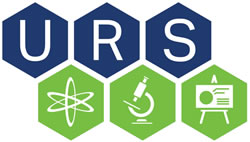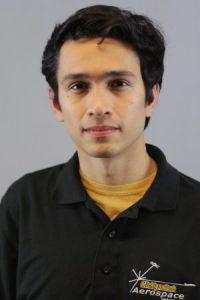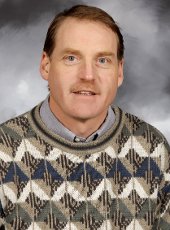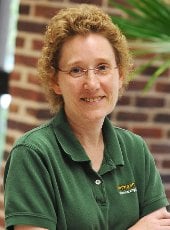On April 9, more than 320 students gathered for the 11th Annual Fraternity and Sorority Life Awards Ceremony held in the Memorial Union Ballroom.
In addition to the many student awards presented, Order of Omega, the Greek Life Honor Society that coordinates the awards, took the time to recognize some exceptional faculty and staff members.
There are more than 560 students in fraternities and sororities at Michigan Tech, and Order of Omega wanted to emphasize that these awards were coming directly from the students.
When writing a nomination for the Outstanding Faculty Award, students were asked to consider faculty who:
- are dedicated to supporting students and helping them succeed academically
- demonstrate a passion for teaching and/or research
- utilize innovative teaching methods
- promote academic integrity among students
When writing a nomination for the Outstanding Staff Award, students were asked to consider staff who:
- are dedicated to supporting students and helping them succeed both inside and outside the classroom
- demonstrate a passion for working with students
- promote and inspire the Michigan Tech Values of Community, Scholarship, Possibilities, Accountability and Tenacity
The following faculty and staff members were nominated by members of the Greek community and were recognized at the 2017 Fraternity and Sorority Life Awards Ceremony:
Faculty:
- Evelyn Johnson (HU)
- Scott Miers (ME-EM)
- David Hand (CEE)
- Noel Urban (CEE)
Staff:
- Laura Bulleit (Dean of Students Office)
- Rochelle Spencer (Student Activities)
These nominations were written by individual students and were supported by an entire fraternity or sorority. In the end, the Outstanding Faculty Award was presented to Evelyn Johnson and the Outstanding Staff Award went to Laura Bulleit.
Advisor of the Year was also awarded to a staff member, Heather Simpson (Wahtera Center). Congratulations to all of these faculty and staff members who were nominated and thank you for inspiring and motivating students.
A special congratulations to Jessie Stapleton, director of student activities, for winning the first-ever Unsung Hero Award. She was recognized for all of her hard work and dedication to the students in the Greek community.
By Student Activities.
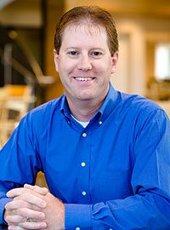
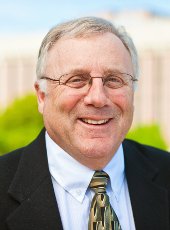
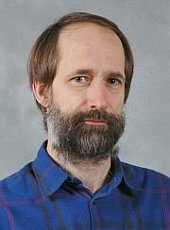

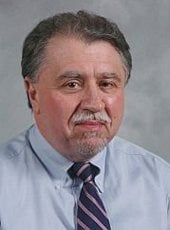

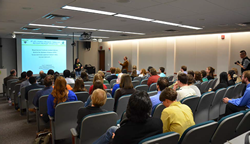 Ameya Narkar received first prize for his poster presentation at the 2017 Upper Peninsula American Chemical Society Student Research Symposium, which was held Saturday, March 25, 2017, in Marquette.
Ameya Narkar received first prize for his poster presentation at the 2017 Upper Peninsula American Chemical Society Student Research Symposium, which was held Saturday, March 25, 2017, in Marquette. Twenty-two Michigan Tech students returned from a three-day, all-expense-paid tour of Gerdau’s Long Steel North America facility in St. Paul, Minnesota yesterday. The trip was hosted by Career Services and made possible through a grant from the Association for Iron and Steel and Gerdau, a Michigan Tech corporate partner.
Twenty-two Michigan Tech students returned from a three-day, all-expense-paid tour of Gerdau’s Long Steel North America facility in St. Paul, Minnesota yesterday. The trip was hosted by Career Services and made possible through a grant from the Association for Iron and Steel and Gerdau, a Michigan Tech corporate partner.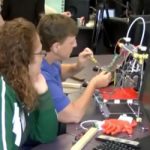 The Summer Undergraduate Research Fellowship (SURF) program will fund 20 students from across the University with funds from the office of the Vice President for Research. Previous SURF award recipients have included Goldwater Scholarship and NSF Graduate Research Fellowship recipients. Since 2002, SURF students have co-authored 71 peer-reviewed publications. This year’s recipients, project titles and advisors are listed on the SURF
The Summer Undergraduate Research Fellowship (SURF) program will fund 20 students from across the University with funds from the office of the Vice President for Research. Previous SURF award recipients have included Goldwater Scholarship and NSF Graduate Research Fellowship recipients. Since 2002, SURF students have co-authored 71 peer-reviewed publications. This year’s recipients, project titles and advisors are listed on the SURF 